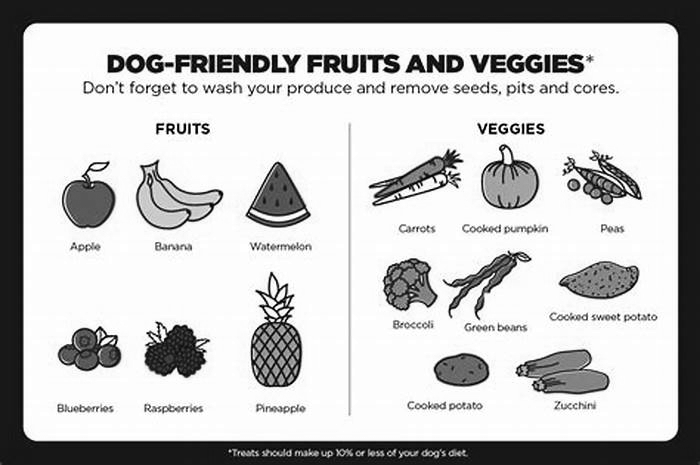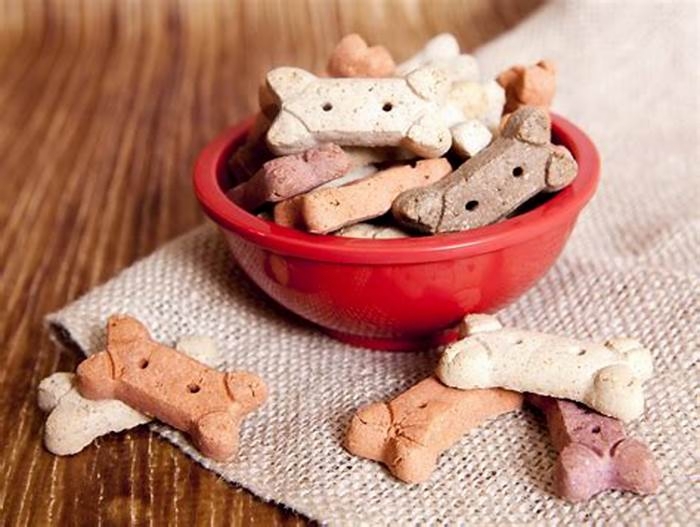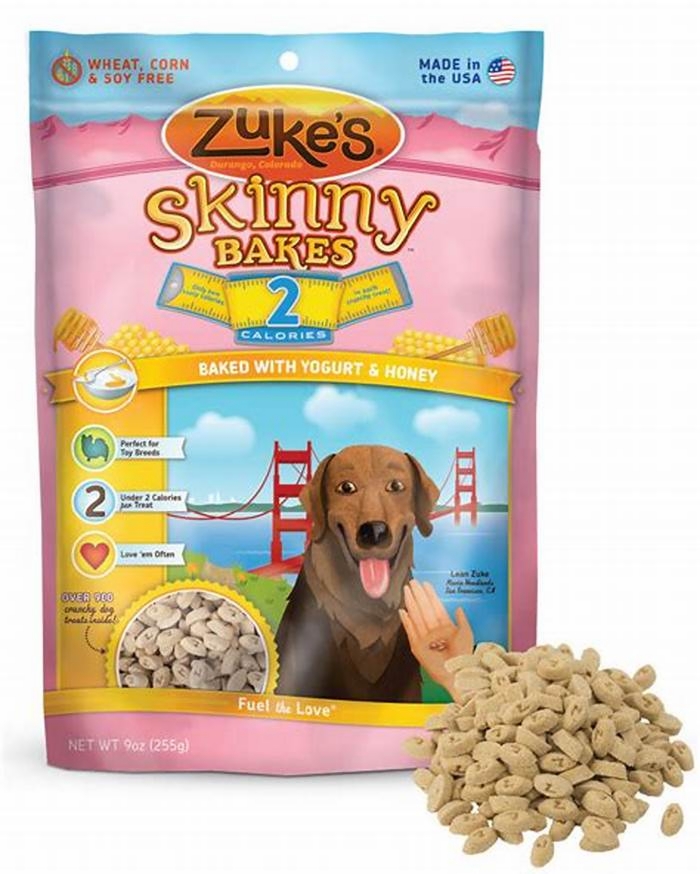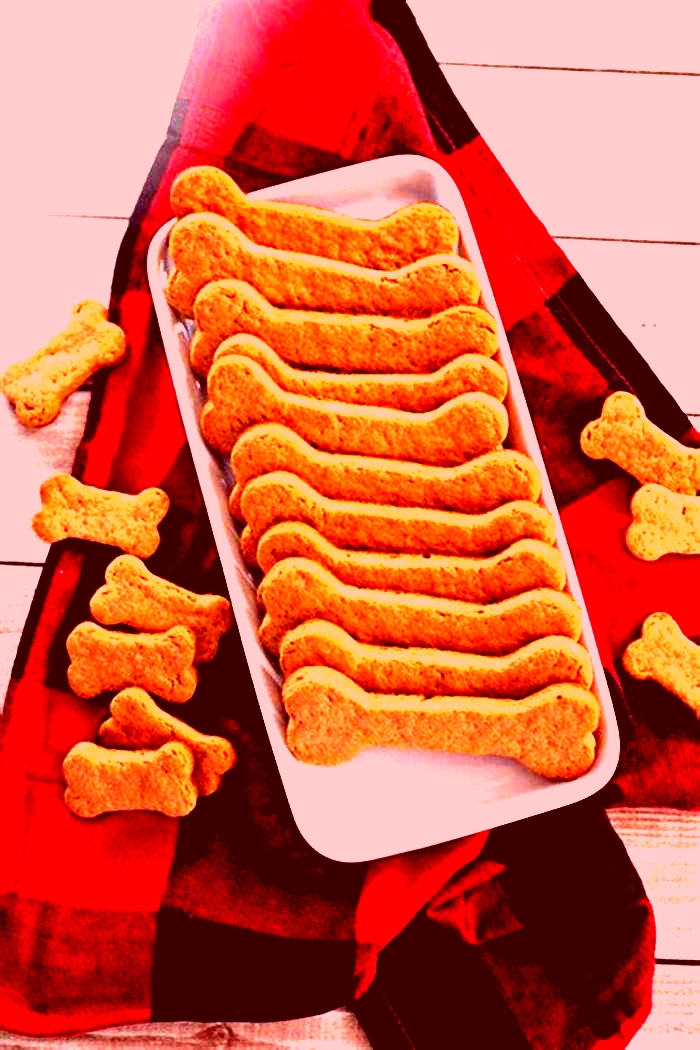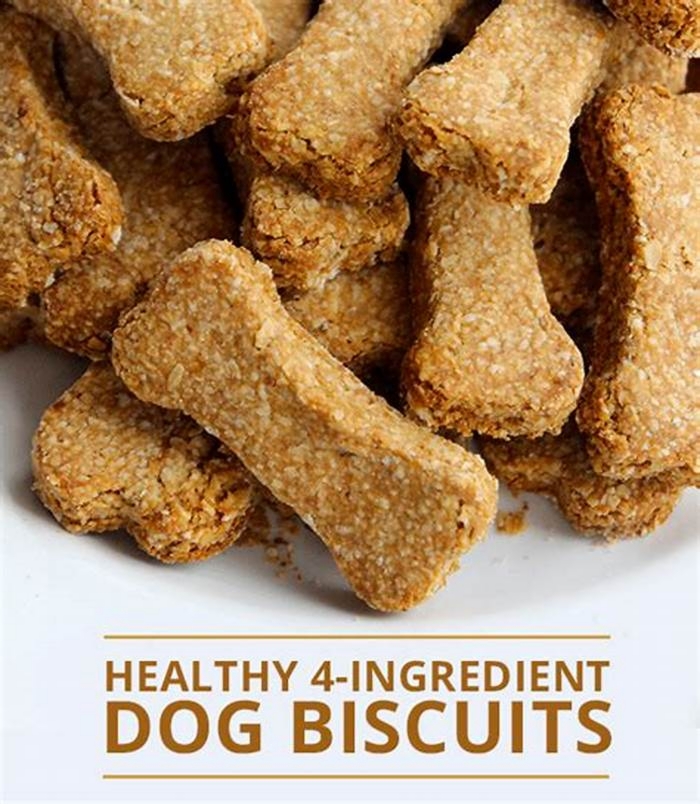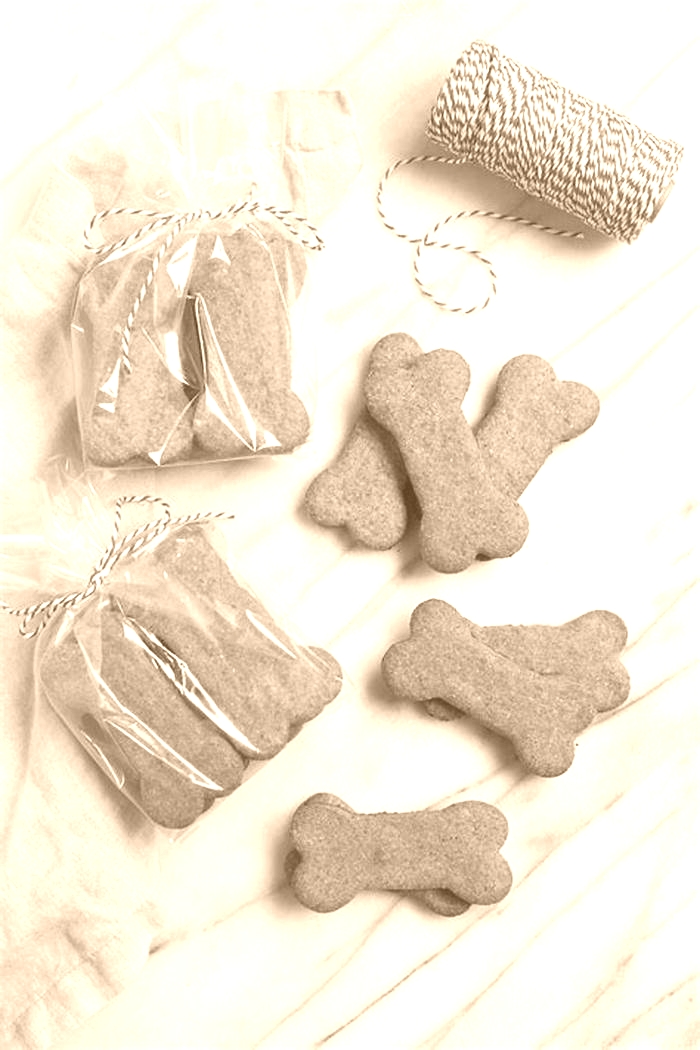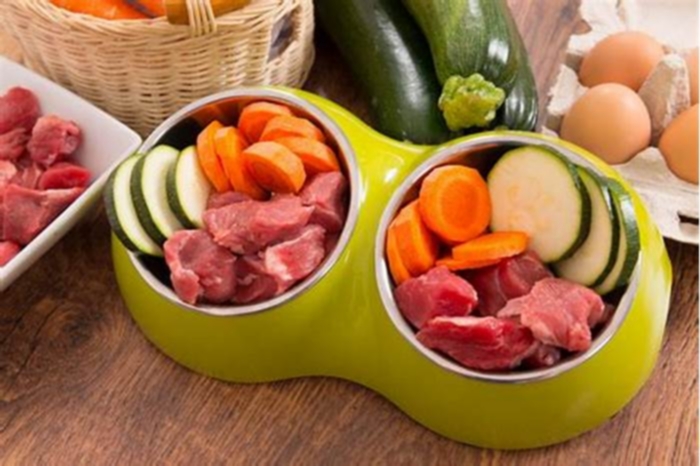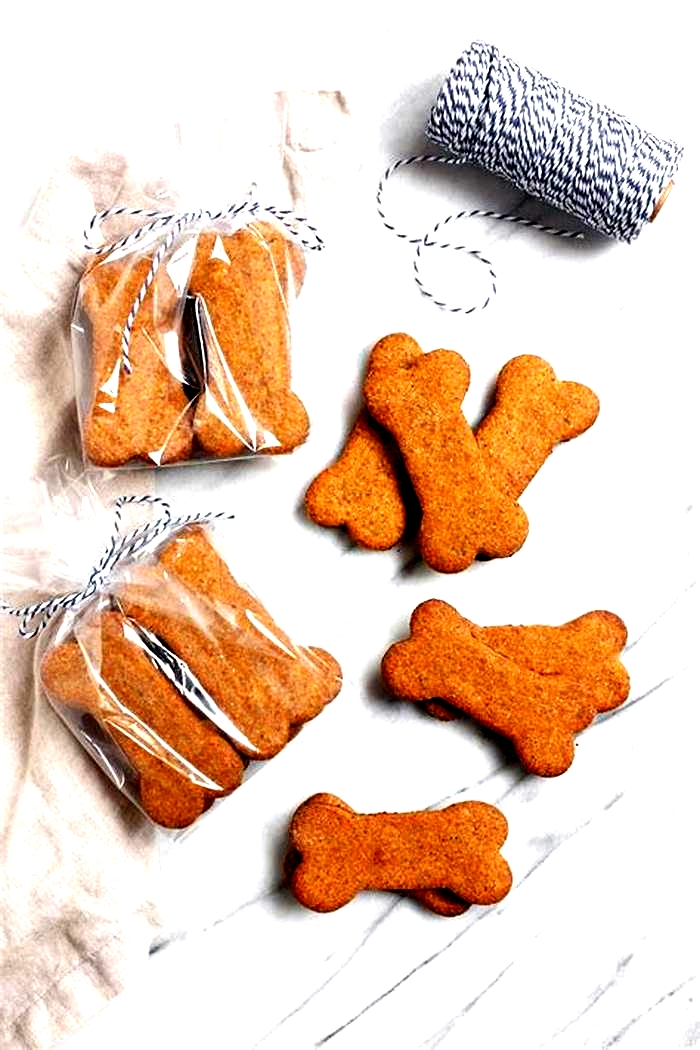good snacks for dogs
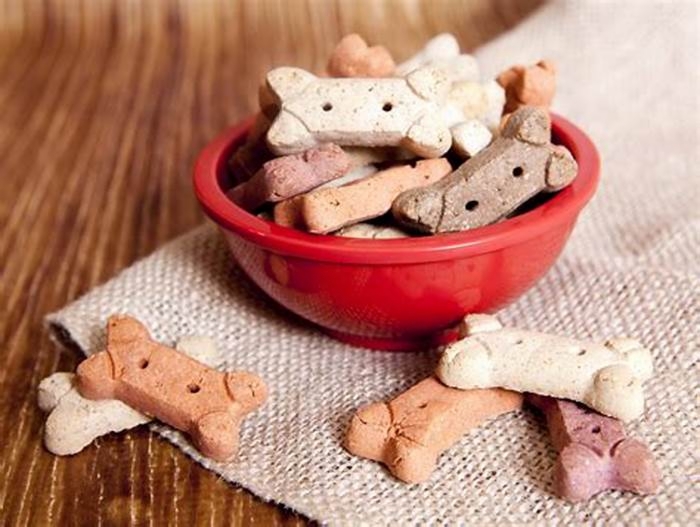
12 natural treats for dogs you can feed from your kitchen
Looking for some ideas on natural treats for dogs that are healthy, tasty, and most likely already in your cupboard or fridge? Then youve come to the right place!
Even though youre probably already spoiling your canine companion by serving them up the best dog food every day, sometimes its nice to be able to offer them some additional treats and snacks to add a bit of variety into their diet.
A lot of pet parents wonder what human foods dogs can eat, so weve compiled a handy list for you of 12 safe options that are also nutrient-dense and taste great - because a food thats nutritious but not delicious isnt worth eating in our book!
While there are a few items below that might not be staples in your kitchen, most are budget-friendly and all of them are readily available, so you wont have to hunt high and low to find them.
Although many popular dog treats lining the supermarket shelves can be good in a pinch and helpful when training, many of them are void of nutrients and act as empty calories.
However, you should keep in mind that many treats we consider as 'healthy' can actually contain hidden sugars for a dog and are best served only in moderation, as part of a balanced doggy diet.
1. Blueberries
They may be small but the humble blueberry packs a powerful nutritional punch that makes it a superfood for both humans and dogs. Loaded with antioxidants that will help fight free radicals and slow down the aging process in your pups body, blueberries are also great at supporting urinary tract health, reducing the risk of some cancers, and can help protect brain cells.
You can mix blueberries into your dogs regular meals, feed them on their own as a snack, and if you freeze them, they make a great cooling treat on hot summer days. Youll also find blueberries in the ingredient list of some of these 6 easy dog smoothies your pooch will love - all of which are a yummy way of sneaking some extra fruit and vegetables into your doggys daily diet.
2. Anchovies and sardines
Ok, we wont lie, these little guys arent going to leave your dogs breath smelling the sweetest but considering all the health benefits they offer, we reckon theyre worth it. Packed full of Omega-3 fatty acids, both anchovies and sardines can help keep your dogs coat looking glossy, their skin nourished, and their heart, brain, and joints in peak condition. Theyre also high in calcium, zinc, and vitamins B12, D, E, and K.
When selecting anchovies and sardines for your pup, go for ones that are packed in water rather than oil and make sure theres no added salt. You can serve them as a snack or as a topper over your dogs wet or dry food. Youll want to keep the portions controlled though as one anchovy has eight calories - stick to two to three per day for small dogs and no more than five for larger breeds. For sardines, smaller dogs can have up to half a tin a week and large breeds can have one tin.
3. Bone broth
The hip kid on the block these past few years, bone broth is equally as good for doggy consumption as it is for humans. A quick warning though, bone broth is a bit of a labor of love as it requires at least 24 hours of simmering animal bones and connective tissue to get the full nutritional benefits, but if you dont mind tending to it, your canine companions body will thank you big time.
High in protein and nutrient-dense, bone broth is full of anti-inflammatory amino acids and collagen to help support gut health. Its also great if your dog suffers from arthritis as it contains high amounts of glucosamine and chondroitin to help their joints and can slow the progression of this painful condition. We recommend you start with a few tablespoons and then gradually increase the dosage. Its great poured over wet or dry food to create a nice soup.
4. Carrots
A kitchen staple in most homes, carrots are loaded with beta-carotene which is great for eye, skin, and coat health, and for helping keep the immune system strong. Carrots are packed full of fiber too, excellent for keeping your pooch regular!
Raw carrots make a delicious and healthy snack and because theyre crunchy, they give your dogs jaw a good workout and help keep those teeth and gums in tip-top shape. Just make sure you cut raw carrots into appropriately sized pieces depending on whether you have a small or large dog. You also can steam or boil them and then puree and mix in with wet food for an extra dose of nutrition.
5. Chia seeds
Popular with wellness warriors the world over, the tiny but might chia seed is a nutritional powerhouse that has it all - protein, fiber, antioxidants, vitamins, minerals, and Omega-3 fatty acids. Getting to work on everything from skin and coat health to supporting the immune and digestive systems, chia seeds also help regulate blood sugar and as they move through the gut they can absorb 10-12 times their weight in water, expanding to leave your pup feeling fuller for longer.
If you want to mix chia seeds into your dogs dry food, youll want to soak them for around 90 minutes first, but with wet food, you can mix the dry seeds straight in as theres plenty of moisture for them to absorb. Chia seeds are full of fiber and too much of anything isnt a good thing, so stick to teaspoon for every 10 pounds of your dogs body weight - so a 20lb dog could have a teaspoon a day and a 40lb dog can have 1 teaspoon.
6. Eggs
Theres plenty to love about the incredible egg which comes rammed full of a host of goodness your dog will benefit from. High in protein, amino acids, fatty acids, and vitamins, eggs are solid all-round performers on the nutrition front. Theyre easy to digest too, so theyre ideal for dogs with delicate digestive systems or those recovering from illness.
You can serve eggs up to your pup in lots of different ways, including scrambled and hard-boiled. One medium-sized egg has about 75 calories, so youll want to factor this into your dogs daily calorie count.
7. Pumpkin
The creamy texture and mild flavor of pumpkin make it a hit with most dogs and like carrots, this vegetable is a great source of beta-carotene, large amounts of soluble fiber, and plenty of antioxidants and vitamins. It works wonders at relieving both diarrhea and constipation and will add a nice shine to your pups coat.
You can mix a tablespoon or two of cooked pumpkin in with your dogs food and the seeds make a great snack if you roast them in a little bit of olive oil - just keep the portion sizes under control with the seeds and stick to a few at a time. If you decide to buy canned pumpkin rather than roasting your own, steer clear of pumpkin pie filling, which has a ton of sugar and spices that arent good for your dog.
8. Cooked sweet potato
Like pumpkin, sweet potatoes tend to go down a treat with dogs and this cooked vegetable keeps well in the refrigerator, so you can roast up a nice big batch at the weekend and itll easily see you through the week. Sweet potatoes are an excellent source of dietary fiber to keep the digestive system healthy and because theyre a whole food, theyre less likely to trigger an allergic reaction, making them safe for most dogs. Just make sure you roast them without seasoning and serve them with the skin off.
9. Watermelon
Juicy and delicious, watermelon makes the perfect cooling summer snack. Overflowing with the antioxidant lycopene, which gives this fruit its pink hue and may help prevent cancer, watermelon is a great source of fluid to help flush the kidneys and keep the urinary tract healthy. Plus it has fiber for digestive health and is vitamin and mineral-rich.
Just be mindful that dogs cant eat the rind or seeds of watermelon, so youll want to remove all of these before you serve this tasty treat up to your pooch.
10. Green beans
Chopped, steamed, raw, or canned, it doesnt matter which way you serve up a green bean, as long as its been prepared naturally, its good for your dog. Theyre full of protein, iron, calcium, and vitamins B6, A, C, and K and theyre low in calories too so theyre great for overweight dogs as they can help them lose weight while still giving them a feeling of fullness.
Add to your dogs food for a tasty topper, give them as a standalone snack, or whip up a batch of your own DIY dehydrated dog treats using a mixture of beans and sweet potato - your pup will love the crispy texture.
11. Bananas
Creamy and filling, bananas are a great low-cholesterol sweet treat that have good amounts of potassium, vitamin C, and copper, which can aid digestion, heart health and provide a vital boost of energy.
You can serve sliced banana on its own or for a really indulgent occasional snack, spread with a little sugar-free peanut butter. Just remember that bananas are a calorie-dense fruit that also contains a fairly high amount of natural sugar, so moderation is key here.
12. Strawberries
A crowd-pleaser with humans and canines alike, the sweet and juicy strawberry makes for a delicious dessert-like treat. Theres plenty of fiber and lots of vitamin C to give your dogs immune system a good boost. Strawberries also act as a natural tooth whitener thanks to a compound called malic acid, so its a great choice if youre looking to polish up your pups pearlers.
Always give fresh strawberries and never canned fruit as these are usually soaked in syrup and sugar. Youll also want to start with small amounts just to make sure this fruit doesnt upset your dogs digestive system and as with all fruits, stick to small portions as strawberries contain natural sugars.
16 Healthy Human Foods for Dogs (That You Havent Thought Of)
Rarely, if ever, are we encouraged to feed our dogs human foods, but some whole foods can actually have great health benefits. But some of the best human foods for dogs, when fed in moderation, can provide a lot of health benefits and improve your dogs overall well-being.
Many pet owners already know about some of the more popular best human foods for dogs, like pumpkin (and its seeds), apples, carrots, peanut butter, and so on. But we've been missing out by excluding plenty of other safe and healthy human foods for dogs that would provide an abundance of vitamins, minerals, fiber, and other good things.
How can you use these foods? There are many ways. You can either give them as snacks to your dogs in between meals instead of highly processed dog treats; you can mix them with the dog food to improve taste, smell, and nutrient profile; or you can make your own homemade dog food recipes using these ingredients, which can be particularly helpful for dogs with food allergies, sensitive stomachs, and other diet-related issues.
Here are 16 of the best human foods for dogs that you probably haven't thought of yet.
16 Best Human Foods for Dogs(That You Haven't Thought Of)

1. Oatmeal
Oatmeal is found in the ingredients list of many commercially made dog foods, but it can be fed to your dog as is (or mixed with dog food). High soluble fiber content makes oatmeal beneficial to the dog's digestive system, and high volumes of vitamins and minerals like magnesium, copper, and iron make oatmeal very nutritious.
People have been eating oatmeal as a healthy food for centuries, but few have considered it as one of the best human foods for dogs that can provide a lot of good things. An added benefit of oatmeal for dogs is its high levels of antioxidants, which battle free radical damage, decrease inflammation, reduce itching, and lower blood pressure.
The more you know: Oatmeal is often utilized to improve weight gain for underweight dogs, and veterinarians sometimes recommend it as part of the diet.
2. Celery
 Dogs may eat celery in moderation; however, some dogs find the texture of this raw veggie difficult to chew. When feeding your dog celery, make sure to remove leaves and cut celery sticks into smaller pieces to avoid choking hazards. Its also important to note that eating too much celery can have a diuretic effect on the dog.
Dogs may eat celery in moderation; however, some dogs find the texture of this raw veggie difficult to chew. When feeding your dog celery, make sure to remove leaves and cut celery sticks into smaller pieces to avoid choking hazards. Its also important to note that eating too much celery can have a diuretic effect on the dog.
Potential benefits of celery for dogs include reduction of inflammation throughout the body, reduction of high blood pressure, improved liver health, improved digestion, improved infection-fighting capability, reduced occurrence of urinary tract infections, and decreased risk of cancer. This has also been shown in many human studies.
The more you know: At one time, celery was used by the pharmaceutical industry as a treatment for arthritis in people.
3. Cauliflower
 Cauliflower is a healthy food that some dogs enjoy, but others find appalling due to its taste and smell. Cauliflower for dogs is safe in moderation, but it's known for increasing flatulence. Your dog can eat raw or cooked unseasoned cauliflower. Although cooked is easier for the dog's digestion, raw cauliflower contains more healthy vitamins and nutrients.
Cauliflower is a healthy food that some dogs enjoy, but others find appalling due to its taste and smell. Cauliflower for dogs is safe in moderation, but it's known for increasing flatulence. Your dog can eat raw or cooked unseasoned cauliflower. Although cooked is easier for the dog's digestion, raw cauliflower contains more healthy vitamins and nutrients.
Cauliflower is one of the best human foods for dogs because it offers many health benefits, including improved weight loss for obese dogs, reduced inflammation, decreased risk of cancer, better digestion, protection of eye health, and improved clot formation due to higher Vitamin K content.
The more you know: Cauliflower has also been used to improve weight gain for underweight dogs.
4. Squash
 Roasted or boiled plain butternut squash for dogs will make a great treat for them, but squash must be peeled and seeded first. Raw squash should be avoided because it is harsh on the canine's digestive system and skin, and seeds can prove poisonous when consumed by dogs.
Roasted or boiled plain butternut squash for dogs will make a great treat for them, but squash must be peeled and seeded first. Raw squash should be avoided because it is harsh on the canine's digestive system and skin, and seeds can prove poisonous when consumed by dogs.
Squash is rich in fiber as well as vitamins A, C, and K. Feeding squash to dogs can help protect their eyesight and improve their digestive health, and it can be used as a more nutritious yet low-calorie filler or topper for foods instead of using grains.
The more you know: Yellow squash varieties are great for your dogs eyesight because they are rich in beta-carotene.
5. Sweet Potatoes
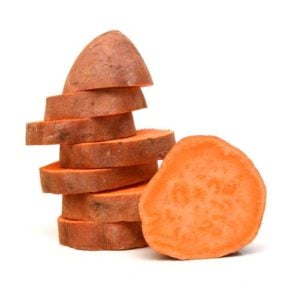 Sweet potatoes are a great treat and an alternative to regular potatoes in dog foods. Steamed or boiled and served in small portions, sweet potatoes are low in fat, high in fiber, and vitamin-rich. It's one of the best human foods for dogs that some pet owners have already taken a liking to and have been feeding to their pets for a while.
Sweet potatoes are a great treat and an alternative to regular potatoes in dog foods. Steamed or boiled and served in small portions, sweet potatoes are low in fat, high in fiber, and vitamin-rich. It's one of the best human foods for dogs that some pet owners have already taken a liking to and have been feeding to their pets for a while.
Potential benefits of sweet potatoes for dogs include protection of eye health, healthier skin and coat, healthy growth patterns, improved digestive health, improved heart health, reduced risk of degenerative disease, improved immune health, healthy thyroid function, healthy nerve conduction, protection against signs of aging, and protection against cancer.
The more you know: Sweet potatoes come in various colors, and each variety offers specific health benefits. The purple sweet potato contains more anthocyanin (an antioxidant), the white sweet potato is more calorie-dense and best for undernourished dogs, and the orange sweet potato is richer in beta-carotene and better for your dogs eye health.
RECIPE:Sweet Potato Dog Biscuits
6. Watermelon
 When peeled, watermelon is a great low-calorie treat for your dog that also provides hydration during the summer months. Your dog should never consume the rind or seeds of the watermelon because they can be dangerous to your dogs health. You should also keep in mind that due to its water content, watermelon will increase your dogs frequency of urination.
When peeled, watermelon is a great low-calorie treat for your dog that also provides hydration during the summer months. Your dog should never consume the rind or seeds of the watermelon because they can be dangerous to your dogs health. You should also keep in mind that due to its water content, watermelon will increase your dogs frequency of urination.
Watermelon is one of the best human foods for dogs because of its increased antioxidant levels, and it improves the immune system functioning, improves circulation, betters heart health, increases hydration, improves digestion, gives healthier skin and coat, reduces the risk of cancer, and reduces high blood pressure.
The more you know: 92% of the watermelon is water, which is what makes it such a refreshing summer treat for you and your dog, especially when your pet refuses to drink plenty of liquids during hot days.
7. Strawberries
 Cleaned and hulled strawberries make a great treat for your dog when given in safe and moderate amounts. Too many strawberries can cause digestive upset in dogs. When giving your dog strawberries, be sure to cut them into smaller pieces to avoid choking and to make them easier to eat.
Cleaned and hulled strawberries make a great treat for your dog when given in safe and moderate amounts. Too many strawberries can cause digestive upset in dogs. When giving your dog strawberries, be sure to cut them into smaller pieces to avoid choking and to make them easier to eat.
Some of the benefits of giving your dog fresh strawberries include improved immune system functioning, better eye health, reduced inflammation throughout the body, protection against cancer, improved cognitive function, reduced risk of arthritis, maintenance of normal blood pressure, and a healthier nervous system.
The more you know: The high levels of nitrate in strawberries make them a great pre-exercise snack because they increase blood flow and oxygen delivery to your dogs muscles, just as they do for humans.
8. Bananas
 The flesh of the banana can be given to your dog in moderation, but the banana peel should always be removed. Due to the high sugar content of bananas and their ability to cause constipation, however, bananas should only be given to your pup in smaller quantities and on rare occasions.
The flesh of the banana can be given to your dog in moderation, but the banana peel should always be removed. Due to the high sugar content of bananas and their ability to cause constipation, however, bananas should only be given to your pup in smaller quantities and on rare occasions.
Bananas are great for your dogs digestive health and are rich in fiber and potassium. They're also beneficial to your dogs heart health, good for reducing high blood pressure, good for boosting the iron content of the blood, regulating the heartbeat, improving cognitive health, reducing inflammation, and protecting against and improving symptoms of degenerative diseases.
The more you know: Slightly green bananas are often given in small quantities to relieve diarrhea and can help to improve insulin sensitivity. They also have lower sugar content than ripe yellow bananas.
9. Coconut
 Coconut and its oil have been a hot topic recently, with a lot of proven benefits shown in studies, many of which are shown in dogs, too. The husk, shell, and coconut water from the coconut should be disposed of, but the meat and oil of the coconut are safe for dogs to eat. Coconut offers many health benefits, and recently, dog food companies are turning to it as a source of great products.
Coconut and its oil have been a hot topic recently, with a lot of proven benefits shown in studies, many of which are shown in dogs, too. The husk, shell, and coconut water from the coconut should be disposed of, but the meat and oil of the coconut are safe for dogs to eat. Coconut offers many health benefits, and recently, dog food companies are turning to it as a source of great products.
Coconut is one of the best human foods for dogs to eat because it's been shown to improve immune system health, decrease inflammation throughout the body, improve skin health, improve energy and stamina, improve digestive health, improve symptoms of diabetes, protect against cancer, improve heart health, support healthy thyroid function, protect against urinary tract infections, support kidney health, improve weight loss, and support healthy skin and coat.
The more you know: Many holistic veterinarians recommend that pet owners use coconut oil on their dogs coat to get rid of flea infestations.
10. Blueberries
 Blueberries are a superfood for dogs as well as humans. Theyre packed with fiber, antioxidants, and a wealth of vitamins. Many studies (see here) have demonstrated the benefits of blueberries, and it's regarded as one of the best fruits/berries to eat, ever.
Blueberries are a superfood for dogs as well as humans. Theyre packed with fiber, antioxidants, and a wealth of vitamins. Many studies (see here) have demonstrated the benefits of blueberries, and it's regarded as one of the best fruits/berries to eat, ever.
While blueberries for dogs are safe, you should give them in moderation to avoid upset stomachs. Blueberries are particularly good for boosting the immune system, preventing urinary tract infections, promoting cognitive and neural health, reducing the risk of eye diseases, and curing constipation.
The more you know: Blueberries are one of the most healthy fruits that dogs can eat, and the majority of canines love the taste.
11. Pork
 Pork is one of the least popular meats when it comes to feeding dogs. But skinless, unseasoned boiled pork with the fat trimmed is not only safe for your dog to eat, but it's also a great source of protein, vitamins, and minerals (and it's cheaper, too).
Pork is one of the least popular meats when it comes to feeding dogs. But skinless, unseasoned boiled pork with the fat trimmed is not only safe for your dog to eat, but it's also a great source of protein, vitamins, and minerals (and it's cheaper, too).
Pork should never be fed raw, however, due to the possibility of parasite infection. Among the meats, pork is one of the best human foods for dogs because it's rich in thiamine, selenium, zinc, and B vitamins. Thiamine is crucial in the metabolism of carbohydrates and the production of energy. Selenium protects against a range of diseases like arthritis, heart disease, and cancer. Zinc in limited quantities is beneficial for skin and coat health. B vitamins play an important role in dog's metabolism, neural health, and growth.
The more you know: Pork is sometimes incorporated into dog foods for dogs with protein allergies because it has a lower incidence of allergic reactions.
RECIPE:Beef and Pork Crock Pot Dog Food
12. Shrimp
 Another rarity among the best human foods for dogs lists, shrimp can be very good for your pooch. When boiled and served plain without legs and shell, shrimp is completely safe and healthy in moderation. As with people, too much shrimp can cause an increase in cholesterol, so it should be avoided in dogs with cardiovascular disorders or obesity.
Another rarity among the best human foods for dogs lists, shrimp can be very good for your pooch. When boiled and served plain without legs and shell, shrimp is completely safe and healthy in moderation. As with people, too much shrimp can cause an increase in cholesterol, so it should be avoided in dogs with cardiovascular disorders or obesity.
Shrimp provide high levels of copper, omega fatty acids, and selenium. Some of the benefits of giving small amounts of shrimp to dogs include reduced inflammation throughout the body, increased levels of antioxidants, reduced incidence of heart disease, improved nervous system health, and lowered blood pressure.
The more you know: Raw shellfish should never be fed to your dog due to the number of bacteria it may contain. Always prepare your dog's shrimp accordingly.
13. Tuna
 As with most fish, tuna is high in beneficial omega fatty acids, but it must be wild-caught and deboned for maximum benefit and the least amount of risk. Dogs may consume minimal quantities of canned tuna in water, but due to possible mercury contamination, fresh tuna is always recommended for dogs.
As with most fish, tuna is high in beneficial omega fatty acids, but it must be wild-caught and deboned for maximum benefit and the least amount of risk. Dogs may consume minimal quantities of canned tuna in water, but due to possible mercury contamination, fresh tuna is always recommended for dogs.
Some potential benefits of giving tuna to dogs include improved cardiovascular health, reduced inflammation throughout the body, increased recovery time from illness and injury, improved circulation, better skin health, increased weight loss for obese dogs, improved immune system functioning, increased energy levels, increased antioxidant levels, and improved neurological functioning.
The more you know: One of the worlds healthiest foods, tuna is exceptionally beneficial to humans and dogs with illnesses of the immune system.
14. Oranges
 Although high in sugar, dogs can eat oranges in moderation unless they suffer from diabetes. Too many oranges may also cause digestive upset in some dogs, so portions should be limited to a single segment or two. They're a great dog treat replacement.
Although high in sugar, dogs can eat oranges in moderation unless they suffer from diabetes. Too many oranges may also cause digestive upset in some dogs, so portions should be limited to a single segment or two. They're a great dog treat replacement.
Some of the health benefits of feeding oranges to dogs may include lowered blood pressure, increased levels of antioxidants, improved heart health, reduced frequency of kidney stones, better skin health, reduced inflammation, better sleep quality, and improved nerve conduction.
The more you know: Oranges are particularly helpful in reducing the incidence of heart disease in humans, dogs, and rats, as shown in some studies.
15. Mango
 Peeled and with the pit removed, mango is a safe treat option for your dog, and its loaded with Vitamins B6, C, E, and A, as well as fiber. Like many fruits, mango is also high in antioxidants, which help fight free radical damage and signs of aging.
Peeled and with the pit removed, mango is a safe treat option for your dog, and its loaded with Vitamins B6, C, E, and A, as well as fiber. Like many fruits, mango is also high in antioxidants, which help fight free radical damage and signs of aging.
Mangoes for dogs have a whole host of health benefits to offer, including guarding against cancer, improving skin and eye health, improving digestion, and creating a more alkaline environment in the body.
The more you know: Mango can be beneficial to dogs with degenerative disorders due to their very high levels of antioxidants and fiber.
16. Pears
 Last but not least, pears are one of the best human foods for dogs. They are also high-fiber fruits and offer dogs healthy doses of Vitamins A and C. A fat-free food, pears are the ideal treat for overweight dogs and are also beneficial for canines with heart disease, a compromised immune system, or symptoms of inflammation.
Last but not least, pears are one of the best human foods for dogs. They are also high-fiber fruits and offer dogs healthy doses of Vitamins A and C. A fat-free food, pears are the ideal treat for overweight dogs and are also beneficial for canines with heart disease, a compromised immune system, or symptoms of inflammation.
In moderation, pears are also a good snack for stabilizing blood sugar levels in diabetic dogs. Before feeding pears to your dog, cut them into smaller pieces and take out any seeds. Like many other fruits, too many pears can cause diarrhea in dogs, so they should be given as a treat in moderation.
The more you know: Pear seeds contain trace amounts of cyanide, which can be dangerous to your dog, so prepare them before feeding.
A Word of Caution
If you have a dog with existing digestive concerns or a sensitive stomach, its best to avoid introducing new foods into their diet unless you've consulted with a veterinarian and decided to go with a homemade dog food diet approach. Always make sure to follow proper dietary guidelines for dogs with sensitive stomachsor other diet-related issues.
If you feel that the benefits of any of the above-mentioned best human foods for dogs outweigh the risks of gastric distress for your dog (or other potential adverse effects), always be sure to check with your veterinarian first, or just avoid the specific food item altogether.
Related Articles


